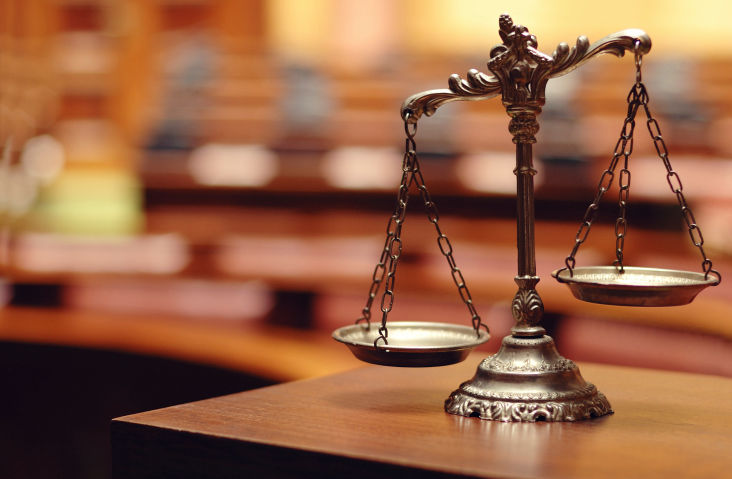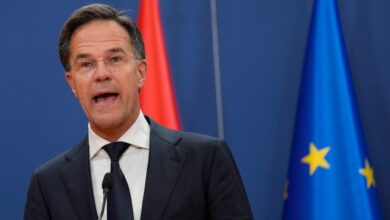Six justices of Pakistan’s High Court accuse intelligence services of interfering in legal proceedings
Six judges of the Islamabad High Court took an extraordinary step and asked the Supreme Judicial Council to step in against what they said was influence by Pakistan’s top intelligence agencies in the judiciary’s operations.

Six judges of the Islamabad High Court (IHC) urged in a letter that the SJC, led by Chief Justice Qazi Faez Isa, hold a judicial convention against this kind of meddling in court matters.
Judges Mohsin Akhtar Kayani, Tariq Mehmood Jahangiri, Babar Sattar, Sardar Ejaz Ishaq Khan, Arbab Muhammad Tahir, and Saman Rafat Imtiaz are the six judges that signed the letter dated March 25.
The letter also urged taking a stand to guarantee the independence of the judiciary via the convention.
The highest authority allowed to take action against judges of the Supreme and High Courts is the SJC.
In our letter, we requested guidance from the Supreme Judicial Council (SJC) regarding a judge’s obligation to report and address actions by executive branch employees, including intelligence agency operatives, that attempt to obstruct the performance of their official duties and may constitute intimidation. We also requested guidance regarding a judge’s obligation to report any such actions that they become aware of concerning coworkers or judges under the High Court’s supervision. It continues by highlighting the executive branch’s and agencies’ meddling in legal affairs, such as the high court judge’s brother-in-law’s abduction and torture to exert pressure on the judge over a case.
It also said, “We will also note that the SJC-mandated code of conduct for judges does not offer any guidance on how judges must respond to and/or report incidents that amount to intimidation and impede judicial independence.”
“It is imperative to investigate and ascertain whether the executive branch of the state, through intelligence operatives reporting to the executive branch, has a persistent policy to intimidate judges, under the threat of coercion or blackmail, to engineer judicial outcomes in politically consequential matters,” the judges added. This happened a few days after the Supreme Court ruled that former IHC Justice Shaukat Aziz Siddiqui’s dismissal was unlawful and that he may now be regarded as a retired judge.
The SJC’s prosecution of Justice Siddiqui was based on the “assumption that the truth or falseness of the allegations levelled” by the former judge was “irrelevant,” according to the ruling.
On October 11, 2018, Siddiqui was dismissed by the Supreme Judicial Council (SJC) for remarks he had made at the Rawalpindi Bar Association a few weeks prior, in which he accused the nation’s most powerful intelligence agency, the Inter-Services Intelligence (ISI), of swaying the legal system and selecting judges.
The IHC justices endorsed Justice Siddiqui’s call for an investigation into his claims in their letter.
The letter, which formally draws attention to the suspected participation of executive and intelligence services in topics pertaining to the judiciary, is said to be unusual. It also asks the SJC, the highest authority, for cooperation in taking action against judges and for direction on such matters.
In the meantime, after the shocking letter by IHC justices, the legal profession and lawmakers urged an independent investigation into the claims.
The chief justice was ordered to conduct a “transparent inquiry” into the situation and to take appropriate action against the individuals involved by the IHC Bar Association (IHCBA), which “strongly condemned the interference of one institution into the matters of another institution.”
The group vowed to uphold the independence of the court and “would take every necessary step for the supremacy of the Constitution and the law.”
“If necessary for the judiciary’s independence, the IHCBA would not even hesitate to hold a lawyers representative convention, countrywide lawyers convention, strike, hunger strike, and run a movement,” the statement said.
“Immediate action against those intelligence agencies and their personnel involved in such nefarious activities and [that] they be punished for undermining and subverting the Constitution and the law” was another demand made by the Lahore High Court Bar Association (LHCBA).
The LHCBA denounced the purported meddling in the harshest terms, calling it a “serious threat to the rule of law and independence of the judiciary.”
In an open letter, Sardar Shahbaz Ali Khosa, Additional Secretary of the Supreme Court Bar Association (SCBA), requested the Chief Justice to use Article 184(3) of the Constitution to take suo motu notice of the issue and have a “thorough and transparent (live) hearing” of the case.
He demanded that the claims be given “immediate and rigorous scrutiny.”The court “must be a safe haven for the pursuit of justice, free from the shadow of undue influence, fear, or coercion,” according to Khosa.
In addition to expressing its concerns, the Balochistan Bar Council requested Chief Justice Isa consider the claims suo motu and called the alleged meddling in legal proceedings “condemnable and unacceptable in any circumstances.”
In a separate statement, the imprisoned former prime minister Imran Khan praised the six courageous judges for drawing attention to the “alarming state of affairs of the higher judiciary” and demanded an “impartial inquiry” into the situation.
A scathing indictment against the independence of the court in the nation, the letter and its two appendices said, “bring on the record the brazen and shameful interference of the intelligence agencies in judicial matters.”
It went on, “There are many concerns about the fairness of the courts and their rulings over the last two years given that the judges have been intimidated and pressured into rendering decisions based on political expediency.”
The statement highlights that the party has been subjected to a “wave of political victimisation,” adding that “courts have been unable to assert their authority or dispense justice.”
Gohar Khan, the leader of the PTI, also wished for the families and safety of the judges who had submitted the letter.
“We also demand that the SC conduct the investigation, inquiry, and procedures in open court. For the judiciary’s independence, this is crucial,” he informed the media.
The letter’s contents, according to Farhatullah Babar, head of the Pakistan People’s Party’s human rights unit, were “beyond wildest imagination.” He remarked, “Eternal gratitude to judges for calling [a] bluff at [a] huge risk.”







